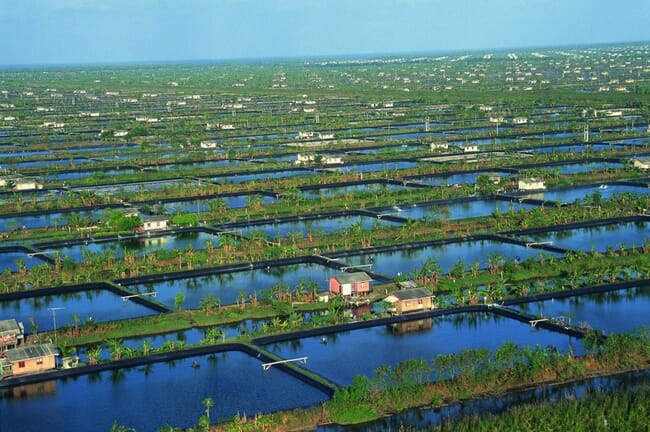The two-year project, centred on Banyuwangi in East Java, will focus on improving the sustainability of aquaculture in the region, as well as governance and management of ongoing shrimp farming.

© Lim Shrimp Organisation
“Effective management of the natural resource base and protection from disease is critical to ensure the long-term investability of the shrimp industry,” said Anton Immink, the Sustainable Fisheries Partnership's aquaculture director.
SFP is working to coordinate the project, together with Conservation International (CI), IDH – the Sustainable Trade Initiative and Longline Environment. The Indonesian Ministry of Marine Affairs and Fisheries, the Indonesian Ministry of National Development Planning, and the Financial Service Authority of Indonesia will all be collaborating on the project as well.
“This programme will support the ministry’s efforts to grow sustainable shrimp exports from Indonesia,” said Machmud, Directorate General of Product Competitiveness for the Indonesian Ministry of Marine Affairs and Fisheries.
The approach is designed to address disease risks and environmental impacts across a politically and ecologically relevant location, to attract investment and insurance, and create a scalable model that can be exported to other geographies.
“This project builds positively on the guidelines we jointly developed and creates the action needed to ensure a sustainable future for the shrimp industry in Indonesia,” said Dane Klinger, aquaculture innovation fellow at CI.
The project is supported by the Walton Family Foundation and the Packard Foundation.


